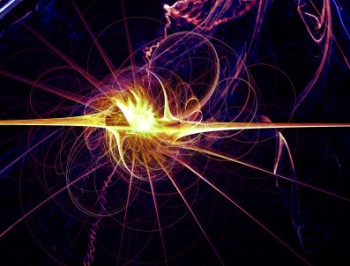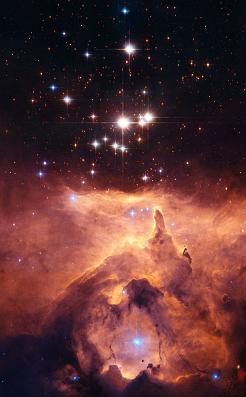I’ve been reading about Gilbert Simondon, a French thinker (1924 – 1989) who has been very influential on the Continent, but is only just becoming known in the English-speaking world. I’m wondering if I can use his ideas to help me in my studies.
|
Using sociology I try to understand what a human being is, and how they are constructed by social forces (or how they construct themselves). Discourses of gender, for example, help construct us as male or female. Simondon spends a lot of time discussing what an individual is1. Rather than understanding an individual as a static unchanging being, Simondon suggests individuals are a process which is part of a system. “Individual development is a constantly changing and fluid, ‘non-linear’ process” (Harvey et al, 2008: 4). He also thinks we are fundamentally relational beings. Simondon thinks we are permanently in relationship, and that our being can only be defined by our relationships. The term “individuation” describes the process of how individuals are created from “pre-individuals”. Debaise says Simondon refers to a “preindividual nature”, by which it seems he really means “being” rather than the natural world of plants, rocks and seas (Debaise, 2012: 3). So we are individuated (‘created’) as a process in a system of being. I originally thought that for Simondon individuals have multiple selves, or parts, but this may be a misunderstanding on my part. |

|
Simondon is talking about ontology, which is the study of being, or existence. I think it was Sartre who said, “The biggest question is why anything exists at all.” He’s right; if you start to ponder why the world is ‘there’, it can get very tricky. Ontology is not just about the fact that things exist, it’s also about the nature of their existence. Ontology asks, “At the deepest, most core level, what kind of a thing is a person?”. If we think a person has a soul, we could ask, “What kind of a thing is a soul, and how does it interact with the world?” If you’re not comfortable with the word, just replace ontology with “existence” whenever you see it.
And here is my question: Why does it matter what the existence of humans actually is? How does being able to describe the “being” of a person make a difference to me as a sociologist? To sociologists or scientists, people who are trying to understand the world, does it really matter? I could just say, “People exist, we know that, let’s move on to something else”.
Here is a second, related question: If ontology does matter for doing sociology, how do I connect ideas about ontology to ideas about how society works? How would knowing the essential nature of a person (or group) affect how I theorise their actions? Does knowing that a person is not a static thing, but a process of individuations make any difference in how I think about their gender? (There are at least a couple of feminist articles on Simondon that suggest some social scientists think it does make a difference.) If you have any ideas I’d love to hear them.
Here’s what I think ontology could mean for social theory:
In the next few months I am going to be interviewing a number of men who will tell me about their lives. Instead of understanding these men as unchanging, fixed “souls”, I can analyse them as a developing process, who are in relationship with their world. Their gender, for example might not be fixed but changing over time as they relate to other men and women. What I believe someone actually is will affect my interpretation of their social world.
Here’s another idea. Elder-Vass (2012: 144) suggests that a theory of ontology can explain causality – how someone causes things to happen. I can cause the water to flow by turning a tap, for example. Socially speaking, ontology might explain how a parent can “cause” the development of gender in a baby by their words and actions. Or a church can “cause” a man to be excluded.
Perhaps I’ve answered my question. But I think there’s more that could be said. Do you have any ideas or comments?
Respond
? What do you think?
Please subscribe (top left) 🙂
Notes
1. For Simondon individuals aren’t necessarily humans. Other things (cars, rivers, elephants) can be individuals too. The idea of non-human individuals, and technics, have been hugely influential on Actor Network Theory, Latour et al, and the philosophy of science. This part of Simondon’s theory is less important to me at present.
References
Debaise, Didier. (2012). What Is Relational Thinking? Inflexions. 5.
Elder-Vass, Dave. (2012). The Reality of Social Construction. Cambridge: Cambridge University Press.
Harvey, Olivia; Popowski, Tamara; Sullivan, Carol. (2008). “Individuation and Feminism.” Australian Feminist Studies. 23(55).
Salmonella Dub – Conspiracy Dub. Great New Zealand band.
Please share this article:


